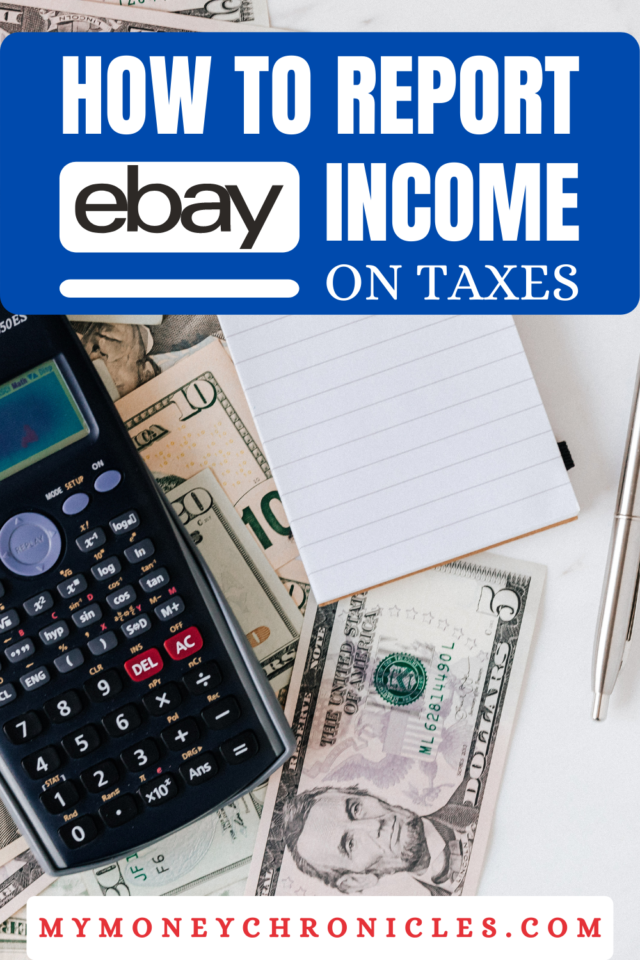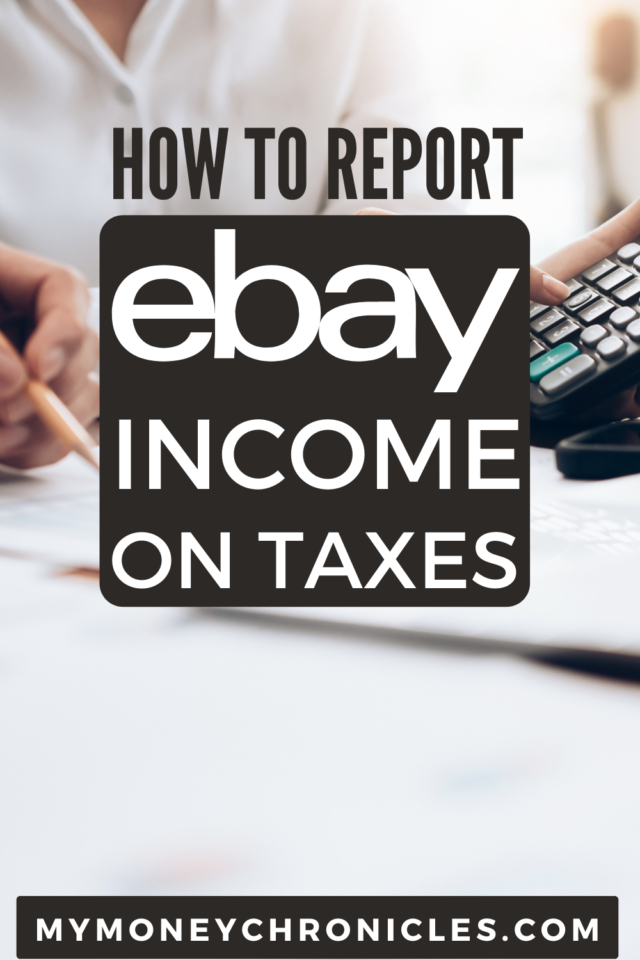How to Report eBay Income on Taxes
Establishing and running a successful online store on eBay is much more comfortable and inexpensive as compared to a physical store. Thousands upon thousands of people sell items on eBay.
The question is whether the earnings from eBay should be reported to the IRS or not? And if the answer is yes, what is the procedure to show them in your return? This article will be a guide that will explain how to report eBay income on taxes.
Classification of Sellers on eBay:
Under IRS guidelines, the sellers on eBay can be divided into two broad categories for tax purpose based on the activities they carry out on their eBay account.
- Hobby- If the seller’s intent is not to earn profit from the selling activity
- Business- If there is a clear intent to make a profit from the selling activity.
When You Should File Taxes on Your eBay Income:
Technically, not all the sellers on eBay are required to pay taxes on their income. There are numerous factors considered by the IRS in distinguishing between the sellers who must report their eBay earnings and those who do not. You should file taxes on your Bay earnings if you make more than $1 per year. Now I know everyone won’t do that, but it’s something that you “should” do.
If your total transactions during the year exceed a total of 200 and your total sales revenue for the year exceeds the limit of $20,000 you should receive a 1099-K form.
Here’s how to report eBay income on taxes
First Thing First:
Once you figure out if and you’re obliged to pay taxes on your generated income, you need to file the relevant forms. However, before submitting any forms, you must do a little research about your business structure, online seller taxation laws and regulations, and required documentation for tax credits and claimable deductions.
You can get some useful information on how to report eBay income by visiting the IRS website. They have a full section to facilitate small businesses and self-employment persons.
All this extra information will help you in filing your return accurately and claiming the correct amount of deductions and tax credits. The more accurate your tax return will be, the fewer chances will be there of an IRS audit or other complications.
Procedure for Filing tax on your eBay Income:
The rate of taxation may vary among different businesses depending on the business structure as there are different rates and allowable deductions for corporations, partnerships, self-employment individuals, and other business entities.
The process of filing tax on your eBay income starts typically by receiving an email containing your 1099-K form from PayPal or any other third party payment processor. This form will provide all the amounts of your business transactions process through your service provider. Now compare the figures in the report with personal records for cross verification. If you find any wrong entry in the report, you can contact PayPal to remove the error. Remember that if you have received an amount of over $20,000 from any other payment processor, they will also send you a similar form, and you will have to fill all the information on your 1099-K.
Here, keep in mind that the figures shown on Form 1099-K are the gross receipts charged on the credit card or through the third party process. In most cases, this amount may not be considered as the actual taxable income. Hence, to calculate the actual taxable income, you need to lessen allowable deductions from your gross revenue.
Expenses / Allowed Deductions:
If your business is registered as an S-corporation, a limited liability company, or a sole proprietorship, you will be able to deduct all the expenses directly related to your business from your revenue.
To claim the number of expenses at the time of filing your tax return, you should keep a proper record of all your payments in a spreadsheet and also keep the supporting documents of those expenses. Under the IRS rules, businesses are allowed to deduct several expenses against their income. Some of the common deductible expenses are:
- Cost of Inventory
- Rental payments of storage house.
- Cost of inventory storage such as cabinets, bins, or tubs.
- Amount of expenses incurred on office supplies such as paper, printer, ink, and cleaning supplies.
- Cost of shipping supplies such as plastic bags, packing material, bubble wrap
- Cost of fuel for transportation of goods
- The cost of professional services like lawyers, auditors, or accountants.
- Cost of advertisements such as business cards, Facebook marketing, or ads in local and international newspapers.
- Cost of computers for office work
- The cost of furniture for staff
- All the repairing costs related to business like the cost of repairing a computer or printer etc.
- Traveling expenses paid by the business for attaining seminars, trade shows, and business events.
- Expenditure made on the training of employees.
- Bank charges
- Cost of utility bills of business office and storage house.
Benefits of Records Keeping:
Maintaining proper records for your business is crucial to keep close tabs on the progress of your business; however, this record-keeping becomes more critical when your business is selected for audit by the IRS agents. You can only defend your case based on your documentation; otherwise, the situation may get worse.
Most people suggest keeping your business record for at least seven years, but some recommend storing it for a much more extended time. Hence, it would be best if you kept as much supporting documents as possible generated from banks, suppliers, stores, couriers, and other sources for future needs.
Every year, people have questions on whether they should files taxes on eBay earnings or not. Hopefully, this post on how to report eBay income on taxes gave you some insight into that. I’d rather take the time to correctly file my taxes than to get an audit from the IRS later down that line. It is not fun having to pay the government back.
More eBay related articles:
How Long Does it Take to Sell an Item on eBay
What to Sell on eBay: 45 Items to Flip Now
Jason Butler is the owner of My Money Chronicles, a website where he discusses personal finance, side hustles, travel, and more. Jason is from Atlanta, Georgia. He graduated from Savannah State University with his BA in Marketing. Jason has been featured in Forbes, Discover, and Investopedia.



